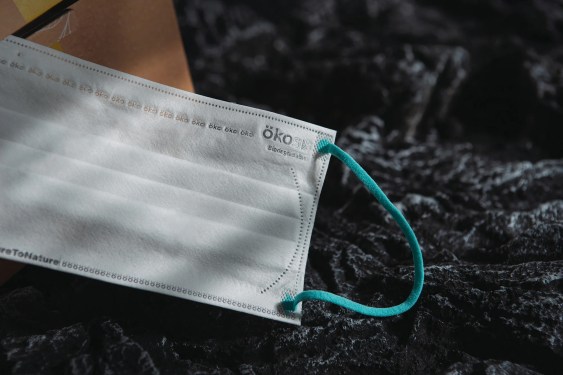Healthcare is filled with single-use plastics. In U.S. healthcare facilities alone, more than 2,800 tons of plastic packaging and products are thrown out every day. Few people are more aware of this issue than Eddie Yu. Early in the pandemic, Yu founded a company that manufactured disposable masks. One day, while he was sorting recycling, his niece asked him if his masks were recyclable.
He told her that the masks could not be recycled. She responded by saying, “Oh, then you make a lot of trash every day.” The little girl’s words had a lasting impact on Yu. After selling the mask company in 2021, he set out to make a change.
In an effort to address healthcare’s single-use plastic problem, Yu’s new company, Ökosix, has developed a new bio-based, biodegradable polymer. Ökosix is part of Startup Battlefield and will be presenting at TechCrunch Disrupt later this month in San Francisco. Ökosix blends various compounds, including cellulose, chitosan derived from crustacean shells, wax, and a proprietary material. The resulting material is cheaper than polylactic acid, a widely used biodegradable plastic, and its functionality is the same or even better.
Yu stated that the term “biodegradability” is often misused in the plastics industry. Some materials require very specific conditions to decompose, while others simply break down into microplastics or nanoplastics. He said that Ökosix has international certifications to prove that its material completely disappears within six months.
Ökosix is starting with face masks but plans to also manufacture surgical gowns, diapers, and sanitary napkins. The goal is to use a safe, non-plastic material to replace fossil-based plastics in disposable products. Although the company has not yet performed a formal life cycle analysis, Yu believes Ökosix’s material should have a carbon footprint that is ninety percent lower than that of polypropylene, a common single-use plastic.
Ökosix sells its material to third parties, which then turn it into various products. Yu compared their business model to that of Gore-Tex. They do not make the finished products but instead produce the layer and the raw materials, partnering with companies like 3M. He added that branding could become a significant part of their business in the future.
The startup has raised 2.3 million dollars, including investments from its founders and other angel investors.

